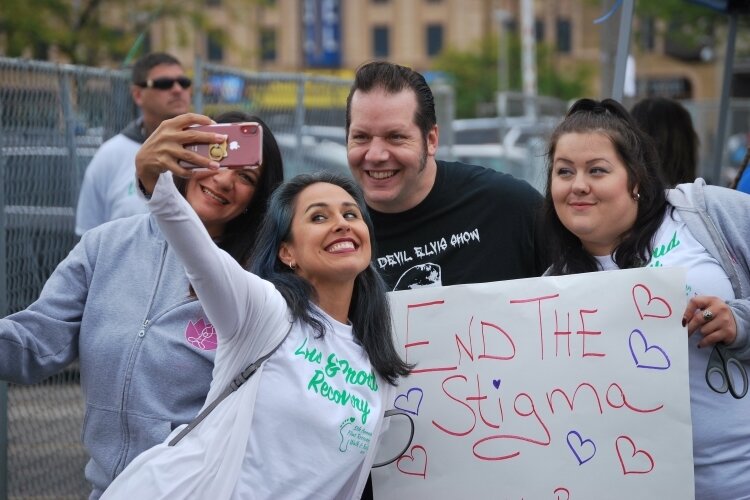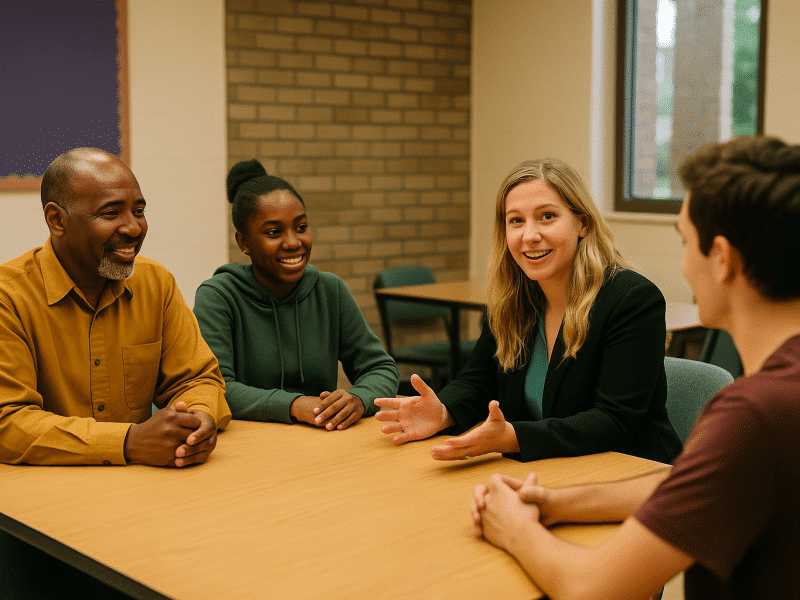Flint recovery center embraces telehealth methods to connect with rehabilitating patients
The Serenity House of Flint is a nonprofit organization that advocates for people recovering from addiction and offers eastern medicine as a recovery medium. It has been adjusting its services to telehealth techniques to continue giving addiction support and services do those that need it.

FLINT, Michigan—With a state-wide “stay-at-home” policy recently ordered by Gov. Gretchen Whitmer, those with addictions or those who are recovering can feel left behind.
According to the National Institute on Drug Abuse, those who partake in vaping, marijuana, methamphetamine, or have an opioid use disorder may find themselves increasingly vulnerable to Covid-related deaths, health complications, homelessness, or incarceration. For those working to rehabilitate from addiction, social-distancing can sound a lot like mandatory isolation, something that can work against recovery.
“I’ve seen some of our regular clients, they’re very shaken by what’s going on,” said Executive Director of Serenity House of Flint (SHF), Tara Moreno. “What I’m hearing from people is that they are afraid of relapse because part of recovery is to make sure that you’re connected.” Many rehabilitation and treatment centers in the city have a general concern for those with medication-assisted treatments and the close of liquor stores said Moreno. Withdrawal symptoms without a proper or safe environment can lead to dangerous circumstances.
The SHF is a nonprofit organization that advocates for people recovering from addiction and offers eastern medicine as a recovery medium. It has been adjusting its services to telehealth techniques to continue giving addiction support and services do those that need it.
SHF had its annual Flint Recovery Arts & Music Show scheduled for March 13 but had to cancel it after social distancing recommendations. Moreno felt it was in the best interest and safety of clients.
Since March 13, SHF has held weekly online seminars and workshops centered on meditations, themed talking circles, and Reiki healings. Saturday, March 21, SHF facilitated a virtual watch party to view the Netflix documentary Heal, the message box allowed for discussion, comradery, and conversation.
While SHF could not take all their programs online, like their acupuncture services, they have gotten creative with they have put online.
“I feel that being able to give someone a hug or being able to just lay hands on their shoulders and let them know that you’re present, I think that’s important,” said Ilona Curry, an SHF volunteer. “ I think that people don’t necessarily remember the value of touch until you can’t do it.”
Instead of acupuncture, SHF offers a program called Emotional Freedom Technique, which according to Moreno works with the meridian system—an acupuncture concept based in traditional Chinese medicine. SHF will offer Emotional Freedom Technique services the first week of April. All programs they offer currently will be done through Zoom, with links available on their Facebook page.
SHF is also taking this time to amp up their online content while working from home. Social media and creating new virtual workshops are going to be their main focus. They are not sure when it will be safe to open their doors again to the public, so Moreno says that they are planning several months in advance in their online format.
“I think that the people who have been able to receive services from Serenity House know that they have a group of people that they can reach out to,” said Curry.
Though SHF provides online support for addiction, Moreno acknowledges that not everyone has access to a reliable internet connection, especially people in recovery who might be economically disenfranchised.
“There’s the support but the structures we put in place are broken. So, we just have to keep reaching the people that we can and keeping ourselves safe as we move through this,” said Moreno. “The biggest question is who’s falling through the cracks right now?”
Both Moreno and Curry are daring to see a brighter side to this. They believe that the systems they are creating during this time will carry over and allow them to help people further once we don’t have to self-isolate anymore.
“This is forcing us to do more of the talking and so it’s just adding to our skillsets in terms of how we can help people and how people receive help,” said Curry.
For people recovering from addiction, SHF also has information on other online programs on their Facebook page. For more information, visit SHF’s website or Facebook page or call them at (810) 412-8241.







